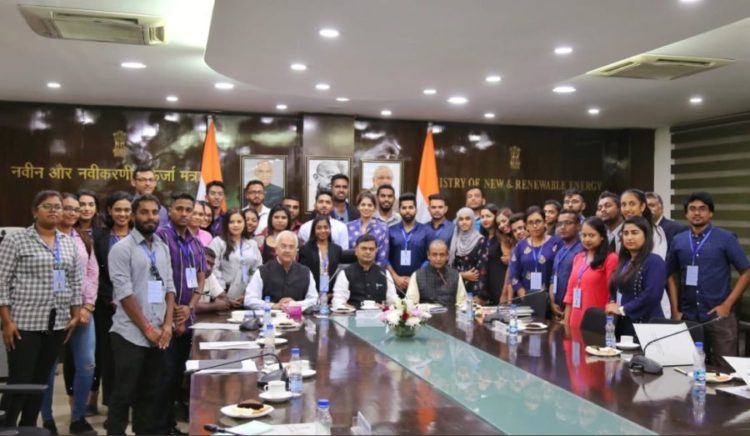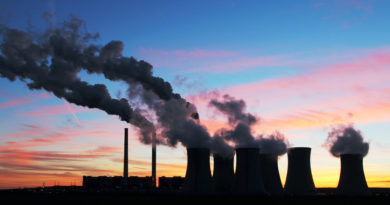Renewable Energy to be primary source in its island chains, Open to Sharing Expertise with Island Nations : R. K. Singh

Union Power and New & Renewable Energy Minister R K Singh, while addressing delegates of Know India Programme 2018 from various countries, including Mauritius, Fiji, Suriname, Guyana, Trinidad & Tobago, and South Africa said that the government is aiming at meeting the complete power demand of Andaman & Nicobar and Lakshadweep islands through renewable energy sources and is willing to share its expertise on the matter with island nations.
“India has chosen the path of sustainable growth and we want to leave a green planet for our future generations. That is why our focus is on renewable energy. We are aiming for 100 percent renewable energy in Andaman & Nicobar and Lakshadweep and India is ready to share expertise among other small island Nations,” said Singh in a statement.
The Know India Programme which has been in existence since 2003, is a flagship programme of Ministry of External Affairs for engagement with Indian origin youth (between 18-30 years) to enhance their awareness about India, its cultural heritage, and to familiarize them with various aspects of contemporary India. According to the statement during their interaction with the officials of the Ministry of Power and MNRE, the delegates were exposed to various dimensions of India’s power and renewable energy sectors. They were informed that as a responsible nation India has committed to increasing the share of non-fossil fuel based electric power generation up to 40 percent by 2030.
Of course, critics will point to the existing slowdown in the sector, especially solar power, besides the issue of capacity versus contribution to actual generation. For instance, as per the ministry’s own figures, close to 10% of electricity generation came from reneweables in the September quarter. That, in simple terms means that in a 24 hour day, power for only about 2 hours 20 minutes came from renewable sources. A long way off from the 40% or the 10 hour target really.
For the islands, as we have been repeatedly stressing going for renewables is critical, considering the delicate ecosystem and the risks of accidents from fossil fuel based generation. Quite simply, the islands need to be considered as a separate category without the same onerous conditions of price celilings etc which are delaying the start of work there. Even the battery plus solutions that have been targeted there seem to be too small currently.
Had an interactive session with the young delegates of 'Know India Programme'; a great initiative which familiarises the youth of the Indian diaspora with their Indian roots, traditions & heritage. pic.twitter.com/JaUXKxG3A9
— R. K. Singh (@RajKSinghIndia) November 14, 2018
“India has already achieved over 33 percent share of non-fossil fuels in the electric installed capacity and is likely to achieve this target much ahead of the deadline. Focused approach and ambitious aims will make India a world leader in the field of renewable energy”, said Singh. Explaining the unique feature of the India Power system the delegates were informed about the countrywide single grid that operates at a single frequency.
Recently, the Power Minister announced that his ministry is in the process of bringing out a new EV charging infrastructure policy with provisions that will allow even individuals to set up commercial charging infrastructures, without licenses. “We have circulated the EV Charging Policy for comments (among other department/ministries). The second line of the policy says that everybody is free to set up EV charging station,” Singh told reporters at International Symposium to Promote Innovation & Research in Energy Efficiency (Inspire 2018).
Read: R K Singh Awards Four Winners of #InnovateToINSPIRE Challenge




